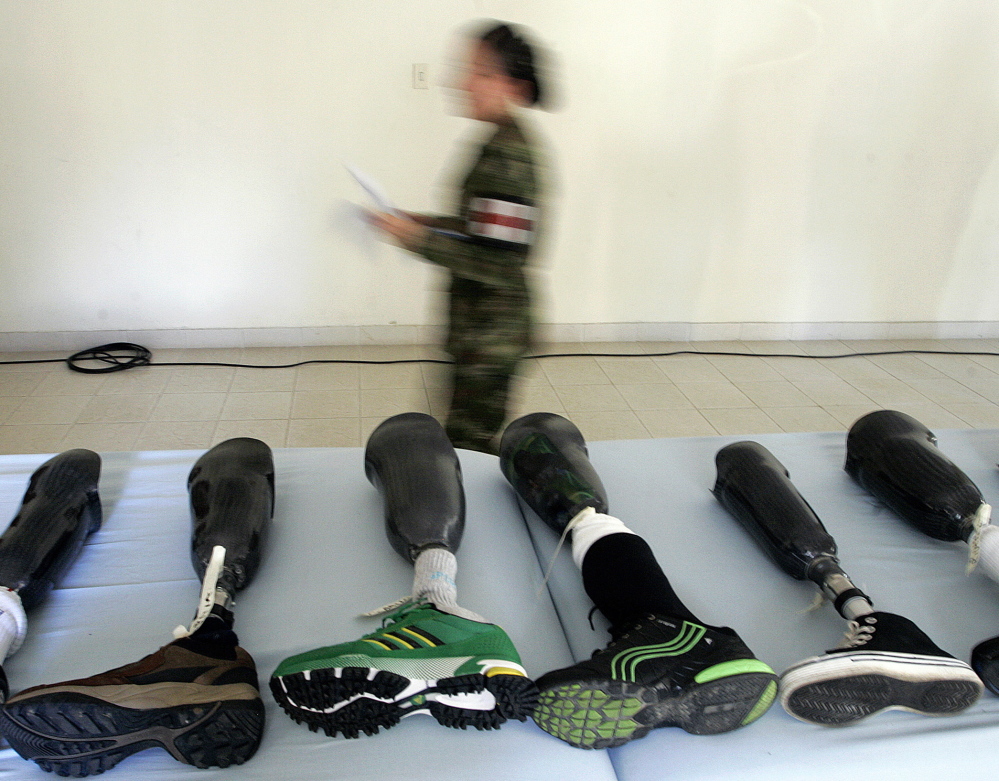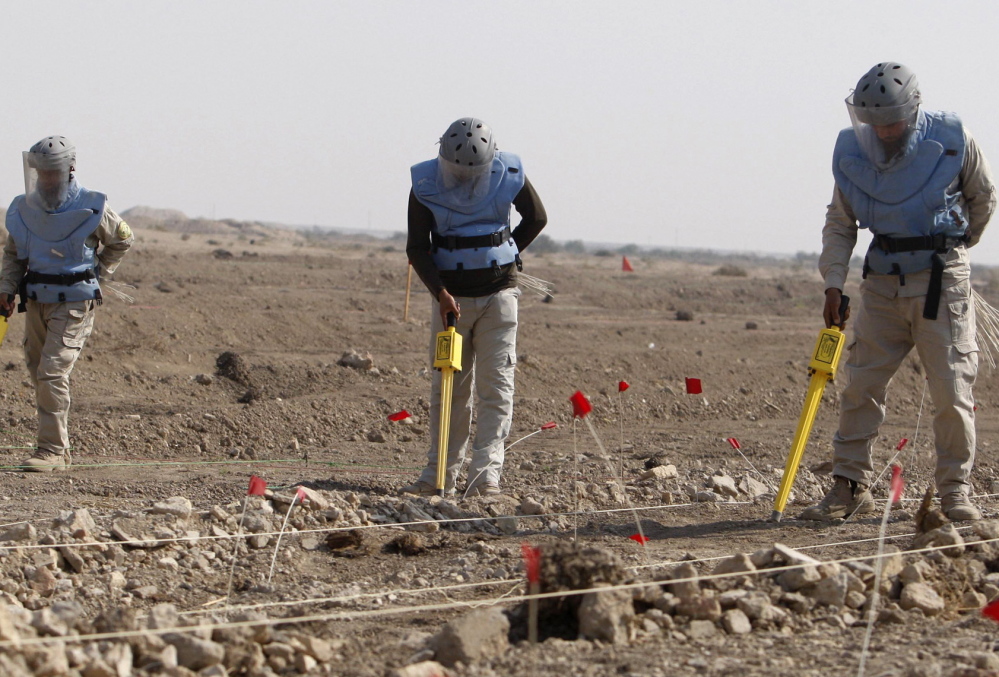After two decades of waffling, the United States on Friday announced its intention to join an international treaty banning land mines, without setting a time frame while working through possible complications on the Korean Peninsula.
Human rights advocates applauded the progress, but said the Obama administration should immediately commit to a ban and begin destroying its stockpile, while Republicans accused the president of disregarding military leaders who wanted to maintain land mines in the U.S. arsenal.
The 15-year-old Ottawa Convention includes 161 nations that have signed on to prohibit the use, stockpiling, production and transfer of anti-personnel mines. President Bill Clinton had a goal of joining the treaty, but the Bush administration pulled back amid objections from military leaders. Obama ordered a review of the U.S. policy when he came to office five years ago, and a U.S. delegation announced the change in position Friday to a land mine conference in Maputo, Mozambique.
“We’re signaling our clear aspiration to eventually accede to the Ottawa Convention,” White House press secretary Josh Earnest told reporters traveling with the president Friday.
Pentagon spokesman John Kirby said the United States has no land mines currently deployed around the globe but maintains an active stockpile of just over 3 million. “They are all in inventory and that’s where they will stay,” Kirby said. He added that the stockpile will begin to expire in about 10 years and be completely unusable in about 20 years.
Human rights advocates say all land mines being used in the Demilitarized Zone between North and South Korea belong to South Korea, but the U.S. maintains a stockpile in South Korea in case of an invasion from the North.
Earnest said Friday’s announcement did not indicate a reduced commitment to South Korea.
“This issue is going to require some additional study and eventually we would like to find a way that we can, like I said, continue the robust defense in place of our allies in South Korea while eventually attaining to the Ottawa Convention, ” Earnest said.
Physicians for Human Rights director of programs Widney Brown said the U.S. announcement is “a step in the right direction, but we remain concerned about anything less than a full commitment to sign the Mine Ban Treaty as soon as possible.”
“The U.S. government has been missing a key opportunity to lead on a groundbreaking agreement that has achieved great success in preventing deaths of innocent victims, including many children,” she said.
Steve Goose, head of delegation for the International Campaign to Ban Landmines, said the U.S. should set a target date to join the treaty, immediately pledge not to use land mines and begin destruction of its stockpiles.
“While they are saying they are working toward banning them in the future, they are leaving open the option of continuing to use them in the meantime, which is kind of a contradictory way to approach things,” Goose said. “They’re bad enough to ban them, but we still want to use them.”
The U.S. has given more than $2.3 billion in the past two decades to more than 90 countries to remove mines and to aid victims.
Send questions/comments to the editors.




Success. Please wait for the page to reload. If the page does not reload within 5 seconds, please refresh the page.
Enter your email and password to access comments.
Hi, to comment on stories you must . This profile is in addition to your subscription and website login.
Already have a commenting profile? .
Invalid username/password.
Please check your email to confirm and complete your registration.
Only subscribers are eligible to post comments. Please subscribe or login first for digital access. Here’s why.
Use the form below to reset your password. When you've submitted your account email, we will send an email with a reset code.